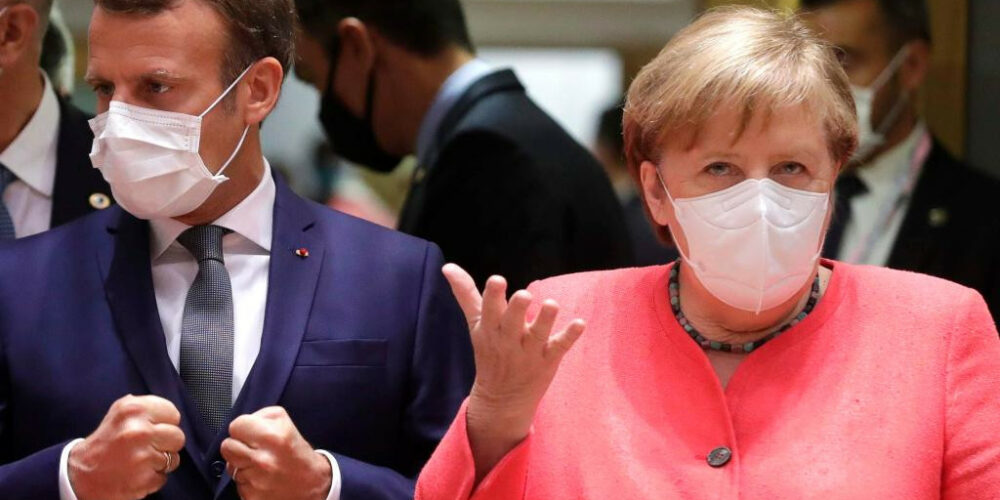The much-heralded recent “Next Generation EU Agreement” between the member-states of the European Union is little more than the papering over of growing and deepening cracks.
The lack of a co-ordinated response to the covid-19 pandemic exposed the underlying fault lines within the European Union, contributing to and speeding up the growing disillusionment with the EU itself in the eyes of tens of millions of working people.
The pandemic has further exposed the fundamental nature of the EU as primarily a vehicle for advancing and protecting the interests of big banks and corporations, with the needs and requirements of working people being secondary.
The “Next Generation” agreement will allow the EU Commission to borrow up to €750 billion, which can only strengthen the power of the Brussels bureaucracy and in particular the hegemony of German and French monopoly capital. About €390 billion will be distributed in the form of grants, including €312.5 billion dubbed the EU’s “Recovery and Resilience Facility.”
To draw down these grants, member-states will have to prepare national recovery plans committing them to “structural reform” of their economy. These “structural reforms” will result in the further privatisation and commercialisation of public services and greater deregulation of national economies, further opening them up to penetration and control by private corporations and the strengthening of corporate control. It will also mean further austerity and more cuts. The remaining €77.5 billion of grants will be used to top up normal EU budgetary programmes.
The agreement will also mean further cuts in EU budgets for scientific research and its “green transition,” which can be better described as greenwashing. The richer countries, such as Sweden, Austria, the Netherlands, and Denmark, have been promised much bigger rebates on their budget contributions for their support for this agreement.
The economically powerful countries are using the pandemic to further consolidate and extend their control. Meaningful democracy at the national level can only be further compromised and eroded, with only one economic strategy and one outcome allowed in all member-states. This can only deepen the growing alienation felt by millions of workers in the member-states, so that no matter who you vote for at the national level nothing will or can be changed.
Working people in Ireland as well as those throughout the EU will experience renewed attacks on their rights and their working terms and conditions, while access to public services that they rely upon will become even more difficult.
The EU “rescue packages” are not for rescuing the people but for saving and propping up an ailing system and its institutions. Building popular resistance is the pressing task for communists, organised labour, progressive social movements, and all those who believe in national sovereignty.






